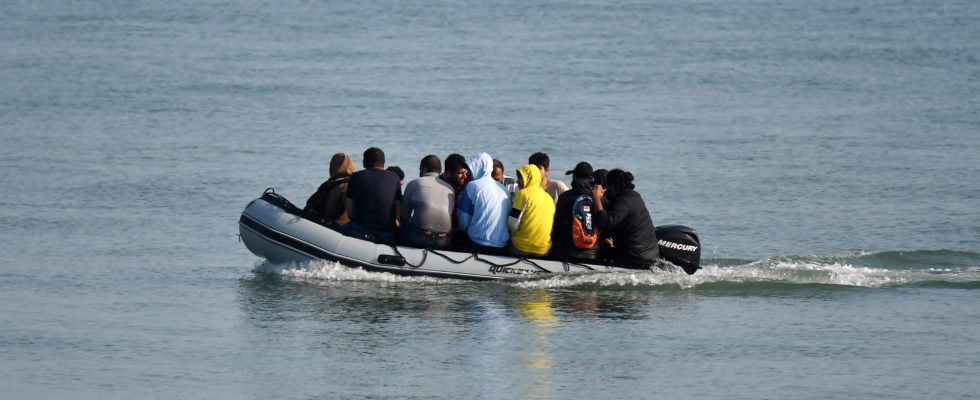At least 29 migrants from sub-Saharan African countries have drowned in the sinking of three boats off Tunisia, the latest in a series of tragedies in the Mediterranean. Twenty-nine bodies have been recovered, the Tunisian coastguard said in a statement on Sunday, adding that it had “rescued eleven illegal migrants of several African nationalities after the sinking of their boats” off the coast of central-eastern Tunisia. . The press release reports three separate shipwrecks.
A Tunisian trawler has recovered 19 bodies after a boat sank 58 kilometers offshore. A coastguard patrol recovered eight bodies off the coastal town of Mahdia and rescued 11 migrants whose boat heading for Italy capsized, while trawlers recovered two other bodies.
A campaign against illegal immigrants
Several dozen migrants have died in a series of shipwrecks and others have been missing since President Kais Saied’s violent speech on February 21 on illegal immigration. He claimed that the presence in Tunisia of “hordes” of illegal immigrants from sub-Saharan Africa was a source of “violence and crimes” and was part of a “criminal enterprise” aimed at “changing the demographic composition” of the country.
After this speech, a good number of the 21,000 nationals of sub-Saharan Africa officially registered in Tunisia, most of them in an irregular situation, had lost their jobs, generally informal, and their housing overnight, because of the campaign against illegal immigrants. .
A “very dangerous” situation
Most African migrants arrive in Tunisia and then attempt to illegally immigrate by sea to Europe, with some stretches of Tunisia’s coastline being less than 150 kilometers from the Italian island of Lampedusa. The Tunisian National Guard regularly reports the interception of hundreds of migrants off the coast of Tunisia on board boats en route clandestinely to the Italian coasts. President Emmanuel Macron and Italian Prime Minister Giorgia Meloni called on Friday for support for Tunisia, which is facing a serious financial crisis, in order to contain the “migratory pressure” that this country represents for Europe.
Rome fears an explosion in the flow of migrants to its coasts, favored by economic and political difficulties in Tunisia, but also by mild weather as summer approaches, facilitating crossings. Tunisia has been negotiating for several months with the International Monetary Fund (IMF) for a loan of nearly two billion dollars, but discussions between the two parties seem to have stalled since an agreement in principle announced in mid-October.
The head of European diplomacy, Josep Borrell, for his part warned on Monday that the situation in Tunisia was “very dangerous”, even mentioning a risk of “collapse” of the State likely to “cause migratory flows towards EU and cause instability in the MENA region” (Middle East and North Africa). An analysis described as “disproportionate” and rejected by Tunis.
